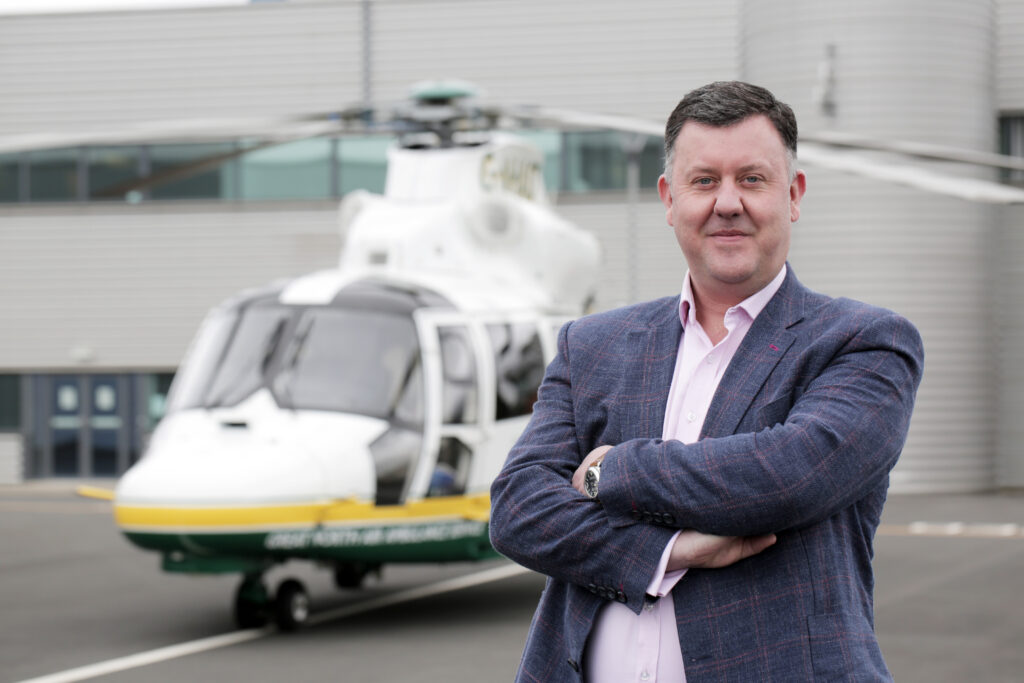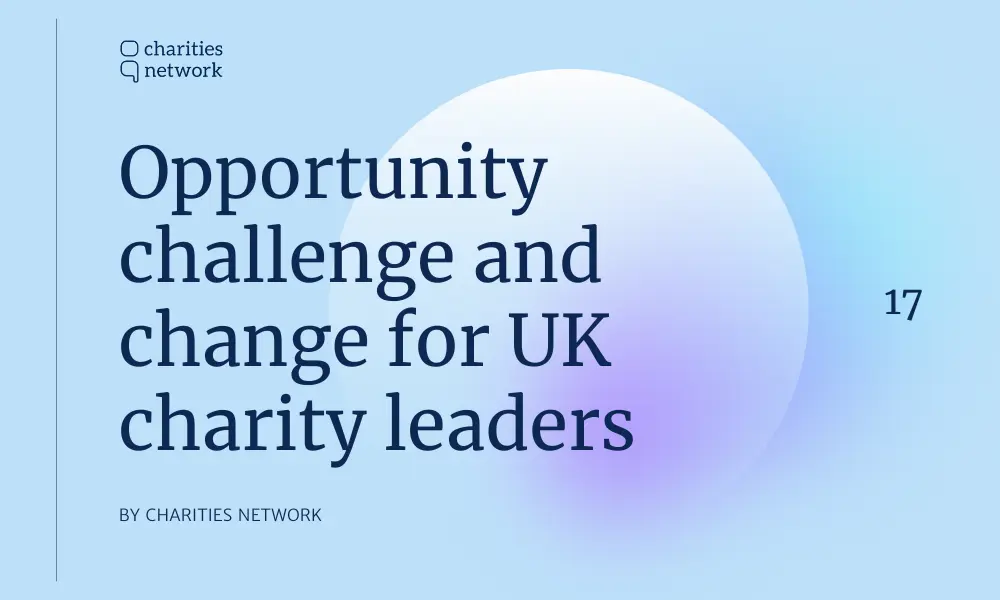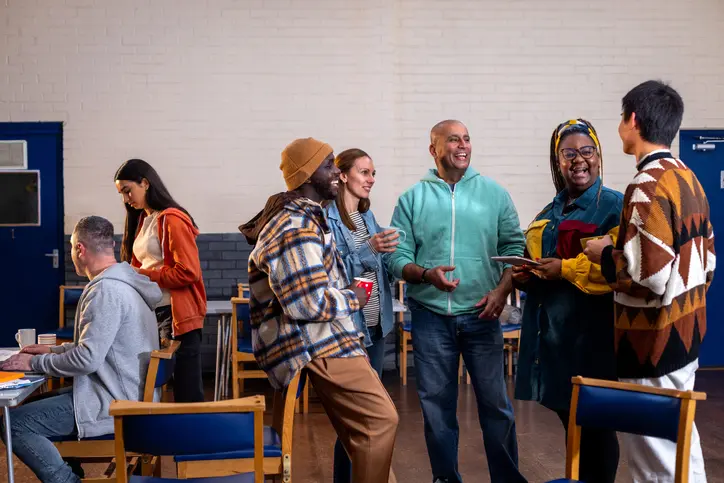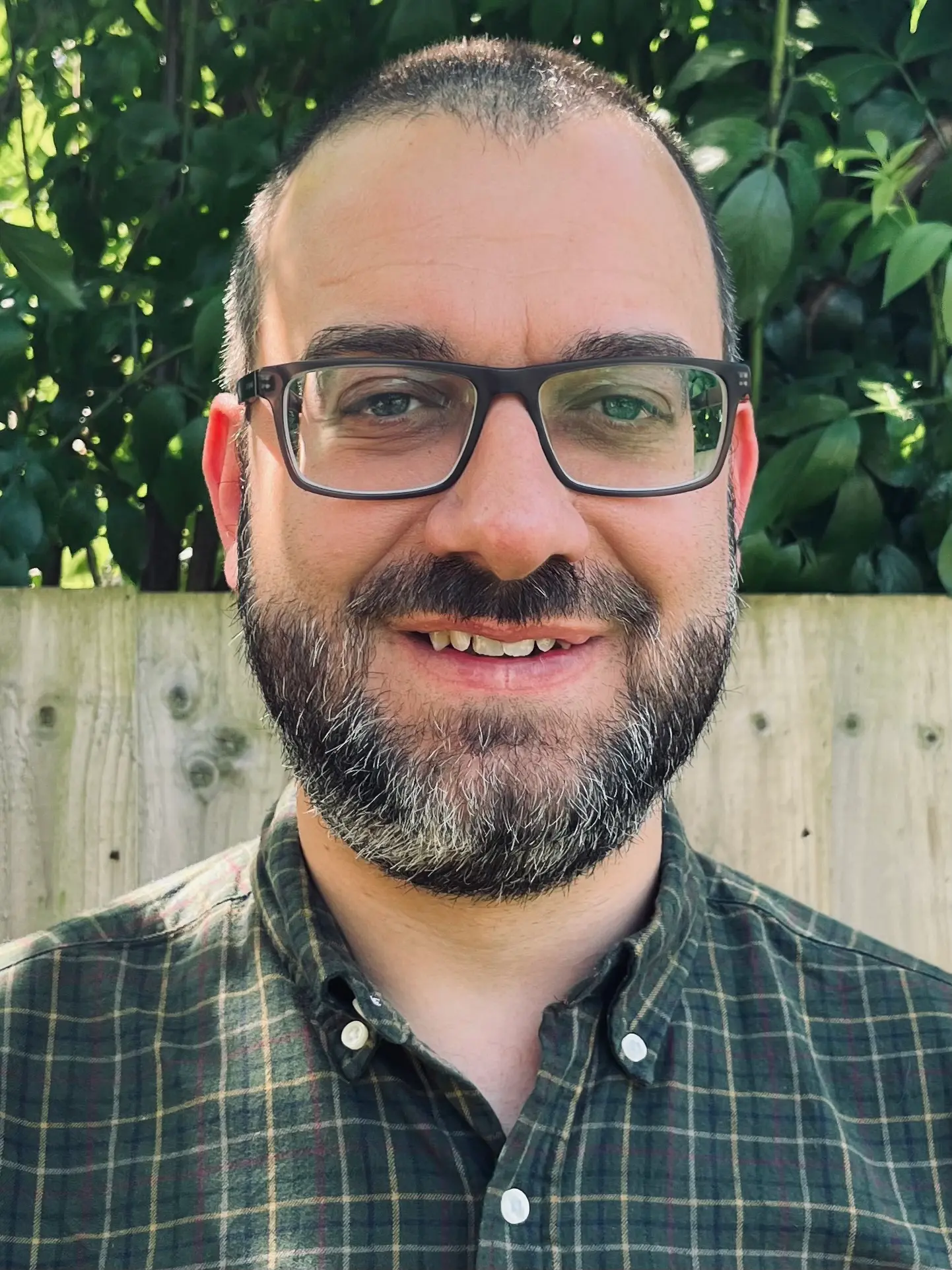What are charity leaders excited about? What is their biggest challenge? What changes have they navigated? These are three questions we asked charity leaders across the UK.
Here we feature 9 charities, all with a diverse range of objectives and missions, but all who are optimistic about the future and looking to find ways to meet demands and grow their impact.
The charities interviewed also shared a similar range of challenges which could fit into 1 or 5 categories, namely:
- Volunteering shortages
- Educating people on their cause
- Influencing change
- Funding shortfalls
- Costs of goods and services
Here’s what they said:
Dr Amo Raju OBE, CEO, Disability Direct

About Disability Direct
An information and advice service for disabled people, older people and carers.
Opportunity: New collaborative services
“The board of the charity I lead, Disability Direct, is very progressive and has endorsed my plan to add new services such as Advocacy support as well as targeted IAG to carers. In the next twelve months we will also look at more collaborative work with like-minded user led groups locally, regionally and nationally to ensure there is a cohesive effort in addressing any inequality around disability and disabled people.”
Challenge: Volunteering shortage
“One of the biggest challenges is the difficulty in galvanising community effort in the post-pandemic era during a cost-of-living crisis which is likely to be around for the near future. Many of our projects rely on volunteers who for very understandable reasons are devoting time to simply making ends meet. Our staff are therefore taking on additional roles to meet the deficit in human resource. Funding bodies have not quite addressed this concern in their criteria for grants with expectations still fairly high in assuming that voluntary groups such as Disability Direct can easily attract volunteers.”
Change: Reshaping the service to meet demand
“As local authorities are tightening their belts in terms of contracts traditionally delivered by groups such as Disability Direct, we have had to make tough decisions about staffing who would normally be facing redundancy in such instances. We took the bold decision to keep staff on after the loss of a contract and re-shape the service to meet the same demand. We have brilliant staff and to lose them will be a massive loss in expertise which is not easy to re-introduce into a charity once it has gone.”
Professor Neil Mortensen, Chair, Occtopus

About Occtopus
The Oxford Colon Cancer Trust pioneers new treatments for colorectal cancer, colitis and Crohn’s and influences how they are treated across the NHS and funds breakthrough national and international research to improve patient outcomes and care.
Opportunity: Leading research and improving treatment
“I am most excited about leading the future of research in IBD and colorectal cancer and improving patient treatment, care and outcomes by creating a centre of excellence at the Churchill Hospital, Oxford University Hospitals.”
Challenge: Education
“Colorectal cancer and IBD is not a very easy subject to talk about publicly or to present a case for funding. Getting access to donors who understand the importance of these groups of diseases in a crowded “marketplace” is a huge challenge for us.”
Change: Digital strategy and engagment
“Carrying out clinical research during Covid was very difficult and we have a much better understanding of the needs and research focus of the Oxford team now. Also, in an increasingly digital world of fundraising, we have shifted our focus towards a more targeted digital strategy. Our past patient supporters also found Covid difficult, and we are re-engaging with them to let them know what we are supporting and fundraising for.”
Justin Donne, Chair, Autistic Nottingham
About Autistic Nottingham
Founded and run by Autistic adults without intellectual disabilities, to bridge the gap in provision for Autistic adults who often find no appropriate services for their needs.
Opportunity: Hitting a turnover milestone
“I serve as chair of the board of trustees for Autistic Nottingham, and am most excited to achieve our next milestone. This year we exceeded the quarter million turnover milestone, and I’m proud of that for such a new charity. More so, considering we’re a small but mighty local non profit run entirely by and for autistic adults.”
Challenge: Education
“One of our biggest challenges is busting the myths surrounding neurodiverse people. Our leaders are all immensely qualified, and yet challenges always seem to come up that wouldn’t if we weren’t neurodiverse.”
Change: Focusing on service users
“We’ve always focused on activities which have a tangible and material benefit to our service users, making it easy to evidence our impact. We have done a little more online, modified and clarified our organisational structure, and expanded some roles.”
Eloise Skinner, Youth Advisory Board, Career Ready UK
About Career Ready UK
Career Ready UK is the UK’s national social mobility charity, working with employers, schools and students across the UK to connect young people to the world of work.
Opportunity: Empowering young people
“Building new partnerships with employers, enabling more young people to feel empowered, confident and well-equipped to enter the world of work.”
Challenge: Navigating impact of pandemic years
“Dealing with the ongoing impacts of the pandemic years, especially when it comes to young people’s access to work experience and internships. During the lockdown periods, a generation of students may have missed out on in-person work experience opportunities, and it’s an important goal to make sure they still experience these opportunities later on.”
Change: Internship investment fund
“Last year, Career Ready UK introduced an internship investment fund, enabling SMEs to receive funding in order to host paid interns over the summer holidays. The change was intended to remove some of the economic barriers that can prevent young people from accessing experiences in the workplace, and has already had a great impact, with 81% of employers reporting that they would hire their intern.”
David Stockton, CEO, Great North Air Ambulance Service

About Great North Air Ambulance
Great North Air Ambulance Service provides air ambulance services across the North-East, Cumbria and North Yorkshire. Working with the NHS and fellow emergency services, GNAAS has become an important part of the region’s major incident response.
Opportunity: Growing services
“The charity is most excited about becoming a 24/7 service, allowing us to deliver our life-saving, advanced care and interventions to more people who are critically ill or injured. Every year the number of incidents we respond to is increasing, meaning more people have a better chance of survival, ultimately keeping more families and communities together. A 24/7 service would mean that no matter where or when within our region, if the worst happens, our specialist teams will be ready to respond and make a difference.”
Challenge: Funding amidst falling donations
“The biggest challenge the charity faces is the funding to enable our front-line team as we are entirely reliant on charitable donations. To deliver the service costs almost £8 million per year. With the cost-of-living crisis we have seen a huge fall in donations to our appeals and in general, but it is only with the support of our communities that we are able to keep responding to incidents.”
Change: Restructuring and exploring new areas of fundraising
“We are constantly reviewing and reassessing our approach to raising funds to ensure we can continue responding. We’ve restructured our teams to be as streamlined and effective as possible, we’re exploring new areas of fundraising we haven’t considered before, and also refining what we do already.”
Owais Khan, Deputy CEO, Human Appeal
About Human Appeal
Human Appeal is a charity working worldwide to fight against poverty, social injustice and natural disaster, by providing immediate relief and establishing self-sustaining development programmes.
Opportunity: Bridging the gap between humanitarian work and development
“We partner with the most marginalised communities around the world to support them in creating long-term, sustainable futures. When emergency strikes, we find the hardest to reach areas and deploy our teams there to help those most in need.
What excites me about the future is that we are not just focused on short term solutions, but equally on bridging the gap between humanitarian work and development: transforming communities affected by crises and delivering innovative, longstanding, and sustainable development solutions.
We’re lucky to have an incredibly enthusiastic and professional team, and although we operate within exceptionally challenging circumstances, with their dedication and skill I know that the future is bright for Human Appeal.”
Challenge: Cost of procurement and logistics
“The rise in cost of materials and food due to inflation has been challenging for our global procurement and logistics teams, who work tirelessly to find the most cost-effective deals with suppliers to supply the best quality aid to our beneficiaries.
The ongoing consequences of climate change, including the recently announced El Niño coming into effect, mean that countries around the world are faced with more frequent and extreme natural disasters. As a result, we predict an even greater demand for our emergency response in affected areas. In light of what we have learned during disasters in recent years, it’s inevitable that the cost of procuring materials when an emergency or a disaster hits will become even more expensive and put further pressure on charitable organisations.”
Change: Developing strategy to increase efficiency
“Over the past year, Human Appeal has invested in developing robust policies, procedures and learning systems that increase our efficiency when responding to any crises. The conflict in Ukraine, the Pakistan floods, and the earthquake in Turkey and Syria all took place during this period of economic recession, but the frameworks we have in place meant that we were able to deliver effective aid as quickly as possible.”
Christine Ansell, CEO, Wandsworth Oasis
About Wandsworth Oasis
Wandsworth Oasis is a local charity raising money for people living with HIV, largely through its nine charity shops in and around the borough.
Opportunity: Influencing change
“I am most excited about the change we can influence in our HIV Community and the part we can play in helping end new transmissions of HIV in England by 2030. There is still a huge stigma associated with HIV both in the UK and globally, and by being part of the dialogue openly talking about HIV and raising awareness that it can affect anyone, the steps you can take to protect yourself from contracting it and any other sexually transmitted disease. We will increase our visibility both in person at events talking about HIV and display information in our chain of charity retail shops educating people about it and signposting to organisations that can offer discrete testing and more in-depth information.”
Challenge: Volunteering shortage
“Our biggest challenge is to attract volunteers to help us achieve our aim of raising funds to help raise awareness of HIV and support the lives of those living with it. Since COVID the number of people volunteering across the UK has dropped. We would love to have more people volunteering in our shops being part of their local community. It can help with building personal confidence, increasing the circle of friends and acquaintances, and for some people who have recently come to the UK, help with their communication skills. Wandsworth Oasis is growing; we will be increasing the number of charity shops we have in our portfolio and with growth you need to make sure everything is fit for future purpose and that means attracting volunteers with specific skills to help in areas such as fundraising. We would love to have volunteers who help at our fundraising events, or who would like to run an event on our behalf; quiz nights or sponsored walks and runs are always popular. We also need helpers at the quarterly Disney Snatch Games we run in Clapham which are amazing fun.”
Change: Restructuring management team to diversify income streams
“Charities are very often working hard, raising their own funds, to keep their operations running that ultimately help the specialist area we focus on. External funding, grants and financial support has diminished with the economic climate we have found ourselves in. Everything costs more, especially utility charges and lease costs, for a chain of charity shops. All money out impacts the important work we do for the HIV community. We run as lean an operation as we can but know we must attract corporate donations, build relationships and partnerships that can attract much needed expertise, quality corporate donated goods we can promote through our shops. This is an area we have been working on and in response to these challenges have restructured our management team to develop diversifying our income streams. This means investing in a new Fundraising Manager position, we believe and hope this will result in identifying new ways to ultimately support the HIV causes that rely on organisations like Wandsworth Oasis to survive and help those who need it the most.”
Steve Bavington, CEO, YMCA Black Country Group

About YMCA Black Country Group
Operates 8 day nurseries across the Black Country, providing high-quality day care to children aged 0-5. Offers a range of housing options and training programmes for vulnerable young people.
Opportunity: Recruitment enabling growth
“The recent recruitment drive we have embarked on that has seen us attract over 100 new employees to the YMCA Black Country family. This will allow us to continue to grow our youth provision, bespoke nursery curriculum and grow our Y-Living offer for employed young people looking to access affordable accommodation. We have also just achieved our first ever Gold Award for Investors in People!”
Challenge: Losing funding or good staff
“Whilst there are lots of opportunities to expand our offer, we are dealing with a complex landscape that is dominated by funding cuts and an ongoing search for the right talent. Like most organisations in our sector, we are being forced to chase funding for successful projects before they come to an end, and this creates the dual risk of losing amazing staff that are currently delivering them.”
Change: New initiative for young people
“The introduction of Y-Living in the Black Country has been transformational and given young professionals, aged between 18-35 or young people in employment, the opportunity to live in great quality accommodation alongside likeminded individuals. This is all about negating the significant cost of getting on the property ladder by providing three models; a shared house (full furnished where residents share communal spaces), clusters (2-4 ensuite rooms share a kitchen and living space) and self-contained units that give ultimate independence. Blended into the accommodation in Dudley, Sandwell and Wolverhampton are opportunities for volunteering, mentoring and giving residents access to activities and programmes delivered by YMCA locally, nationally and internationally.”
Adam Dodd, CEO, Minstead Trust
About Minstead Trust
Minstead Trust provides training and support that improves the lives of people with learning disabilities.
Opportunity: A team with a clear vision
“Having a team with the vision and energy to really challenge the accepted wisdom of the adult social care sector, imagine a better world, and to create the services of the future.”
Challenge: Overcoming status quo inefficiencies
“Persuading fraught local authority commissioners that there may be a better way and getting them to take a chance on something new. The way that learning disability care is tendered for and purchased hampers better solutions. Specifically, it bakes in inefficiency by requiring duplication of skills and resources across multiple services, but it also pigeonholes providers into a very siloed way of delivering, and one in which there is a huge disconnect between what is contractually ‘required’ and what is funded. These silos are often institutional in their thinking and don’t allow for more holistic provision of support, one which focuses on the overall quality of an individual’s life and can work with agility and flexibility to improve it in several different ways. “
Change: Building better financial resilience through social enterprises
“We have diverted most of our energy away from crying about inadequate fees from local government and instead put it towards building greater financial resilience and independence. We are doing this through rapid growth of our social enterprises – businesses in which we provide work experience and employment opportunities for people with learning disabilities, but that are intended to generate surpluses which can be used to support our holistic models and, crucially, to reward care professionals more appropriately than local authority rates allow.”







